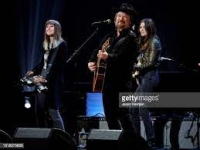Latest Sheet Music
Napoleon Coste
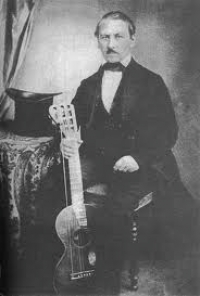
Claude Antoine Jean Georges Napoléon Coste (June 28, 1805 – February 17, 1883) was a French guitarist and composer.
Napoléon Coste was born in Amondans (Doubs), France, near Besançon. He was first taught the guitar by his mother, an accomplished player. As a teenager he became a teacher of the instrument and appeared in many concerts in the Franche-Comté. In 1829, at the age of 24, he moved to Paris where he studied under Fernando Sor and quickly established himself as the leading French virtuoso guitarist. However, the demand for guitarists was in decline and, though his brilliance provided financial stability, he failed to find a publisher for his music. As such, he had to fund its publication himself.
Napoléon Coste was born in Amondans (Doubs), France, near Besançon. He was first taught the guitar by his mother, an accomplished player. As a teenager he became a teacher of the instrument and appeared in many concerts in the Franche-Comté. In 1829, at the age of 24, he moved to Paris where he studied under Fernando Sor and quickly established himself as the leading French virtuoso guitarist. However, the demand for guitarists was in decline and, though his brilliance provided financial stability, he failed to find a publisher for his music. As such, he had to fund its publication himself.
Nina Simone

Nina Simone was an American singer, songwriter, pianist, arranger, and civil rights activist who worked in a broad range of musical styles including classical, jazz, blues, folk, R&B, gospel, and pop.
The Phil Collins Big Band

The Phil Collins Big Band was a side project of English rock drummer, singer and musician Phil Collins, which performed in 1996 and 1998.
Although best known for his work in pop as a solo artist and progressive rock with Genesis, one of Collins' earliest influences had been the American big band drummer Buddy Rich. The group presented big band renditions of Collins and Genesis songs, including hits such as "Sussudio" and "Invisible Touch". The group was primarily an instrumental act, with Collins remaining behind the drums, like the early days of Genesis and rarely singing at performances. The group split up in 1999, when Phil Collins started to work on the music for the then upcoming movie, Tarzan.
The group released one album, A Hot Night in Paris, recorded in 1998 and released in 1999. The footage of Montreux Jazz Festival 1996 was featured as a bonus feature on the 2010 DVD "Phil Collins Live At Montreux".
Collins' work with the Phil Collins Big Band received acclaim and Modern Drummer readers voted him Big Band drummer of the year in 2000.
Although best known for his work in pop as a solo artist and progressive rock with Genesis, one of Collins' earliest influences had been the American big band drummer Buddy Rich. The group presented big band renditions of Collins and Genesis songs, including hits such as "Sussudio" and "Invisible Touch". The group was primarily an instrumental act, with Collins remaining behind the drums, like the early days of Genesis and rarely singing at performances. The group split up in 1999, when Phil Collins started to work on the music for the then upcoming movie, Tarzan.
The group released one album, A Hot Night in Paris, recorded in 1998 and released in 1999. The footage of Montreux Jazz Festival 1996 was featured as a bonus feature on the 2010 DVD "Phil Collins Live At Montreux".
Collins' work with the Phil Collins Big Band received acclaim and Modern Drummer readers voted him Big Band drummer of the year in 2000.
Traditional

Hangad

Hangád (Tagalog: "yearning" or "desire") is an inspirational vocal ensemble known for songs like Pananatili and Panunumpâ (covered by pop singer Carol Banawa). They have also recorded albums which are co-produced with the Jesuit Music Ministry (JMM), the musical arm of Jesuit Communications Foundation (JesCom) of the Philippine Province of the Society of Jesus.].
In 2006, Hangad won an Awit Award for Best Inspirational or Religious Song.
In 2006, Hangad won an Awit Award for Best Inspirational or Religious Song.
Franz Schubert

Franz Peter Schubert (German pronunciation: ; January 31, 1797 – November 19, 1828) was an Austrian composer. He wrote some 600 Lieder, nine symphonies (including the famous "Unfinished Symphony"), liturgical music, operas, some incidental music, and a large body of chamber and solo piano music. He is particularly noted for his original melodic and harmonic writing.
Schubert was born into a musical family, and received formal musical training through much of his childhood. While Schubert had a close circle of friends and associates who admired his work (amongst them the prominent singer Johann Michael Vogl), wide appreciation of his music during his lifetime was limited at best. He was never able to secure adequate permanent employment, and for most of his career he relied on the support of friends and family. He made some money from published works, and occasionally gave private musical instruction. In the last year of his life he began to receive wider acclaim. He died at the age of 31 of "typhoid fever", a diagnosis which was vague at the time; several scholars suspect the real illness was tertiary syphilis.
Interest in Schubert's work increased dramatically in the decades following his death. Composers like Franz Liszt, Robert Schumann and Felix Mendelssohn discovered, collected, and championed his works in the 19th century, as did musicologist Sir George Grove. Franz Schubert is now widely considered to be one of the greatest composers in the Western tradition.
Schubert was born into a musical family, and received formal musical training through much of his childhood. While Schubert had a close circle of friends and associates who admired his work (amongst them the prominent singer Johann Michael Vogl), wide appreciation of his music during his lifetime was limited at best. He was never able to secure adequate permanent employment, and for most of his career he relied on the support of friends and family. He made some money from published works, and occasionally gave private musical instruction. In the last year of his life he began to receive wider acclaim. He died at the age of 31 of "typhoid fever", a diagnosis which was vague at the time; several scholars suspect the real illness was tertiary syphilis.
Interest in Schubert's work increased dramatically in the decades following his death. Composers like Franz Liszt, Robert Schumann and Felix Mendelssohn discovered, collected, and championed his works in the 19th century, as did musicologist Sir George Grove. Franz Schubert is now widely considered to be one of the greatest composers in the Western tradition.
Tom Beek
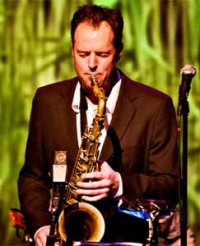
Tom Beck (born February 26, 1978) is a German singer and actor. From 1999 to 2003, he studied at the Bayerische Theater Academy in Munich, in the musical department. Beck, who has a solo program called "Beck-course", has produced various theatrical and musical productions.
François Couperin

François Couperin (French: ; 10 November 1668 – 11 September 1733) was a French Baroque composer, organist and harpsichordist. He was known as Couperin le Grand ("Couperin the Great") to distinguish him from other members of the musically talented Couperin family.Couperin was born into a prominent musical family. His father Charles was organist at the Church of Saint-Gervais in Paris, a position previously held by Charles's brother Louis Couperin, the esteemed keyboard virtuoso and composer whose career was cut short by an early death. As a boy François must have received his first music lessons from his father, but Charles died in 1679. The church council at Saint-Gervais hired Michel Richard Delalande to serve as new organist on the understanding that François would replace him at age 18.
Scott Joplin

Scott Joplin (between June 1867 and January 1868 – April 1, 1917) was an American musician and composer of ragtime music. He remains the best-known ragtime figure and is regarded as one of the three most important composers of classic ragtime, along with James Scott and Joseph Lamb, and also a precursor to Stride Piano. Decades after his death, his music enjoyed a considerable surge of popularity and critical respect in the 1970s, especially for his most famous composition, "The Entertainer."
Even at the time of publication, Joplin's publisher John Stark was claiming that the rags had obtained classical status, and "lifted ragtime from its low estate and lined it up with Beethoven and Bach".
Even at the time of publication, Joplin's publisher John Stark was claiming that the rags had obtained classical status, and "lifted ragtime from its low estate and lined it up with Beethoven and Bach".
Mozart

Wolfgang Amadeus Mozart, full name Johann Chrysostom Wolfgang Amadeus Mozart (27 January 1756 â 5 December 1791) was a prolific and influential composer of the Classical era. His over 600 compositions include works widely acknowledged as pinnacles of symphonic, concertante, chamber, piano, operatic, and choral music. Mozart is among the most enduringly popular of classical composers, and many of his works are part of the standard concert repertoire.
Mozart's music, like Haydn's, stands as an archetypal example of the Classical style. His works spanned the period during which that style transformed from one exemplified by the style galant to one that began to incorporate some of the contrapuntal complexities of the late Baroque, complexities against which the galant style had been a reaction. Mozart's own stylistic development closely paralleled the development of the classical style as a whole. In addition, he was a versatile composer and wrote in almost every major genre, including symphony, opera, the solo concerto, chamber music including string quartet and string quintet, and the piano sonata. While none of these genres were new, the piano concerto was almost single-handedly developed and popularized by Mozart. He also wrote a great deal of religious music, including masses; and he composed many dances, divertimenti, serenades, and other forms of light entertainment.
The central traits of the classical style can be identified in Mozart's music. Clarity, balance, and transparency are hallmarks of his work.
Mozart's music, like Haydn's, stands as an archetypal example of the Classical style. His works spanned the period during which that style transformed from one exemplified by the style galant to one that began to incorporate some of the contrapuntal complexities of the late Baroque, complexities against which the galant style had been a reaction. Mozart's own stylistic development closely paralleled the development of the classical style as a whole. In addition, he was a versatile composer and wrote in almost every major genre, including symphony, opera, the solo concerto, chamber music including string quartet and string quintet, and the piano sonata. While none of these genres were new, the piano concerto was almost single-handedly developed and popularized by Mozart. He also wrote a great deal of religious music, including masses; and he composed many dances, divertimenti, serenades, and other forms of light entertainment.
The central traits of the classical style can be identified in Mozart's music. Clarity, balance, and transparency are hallmarks of his work.
Gluck
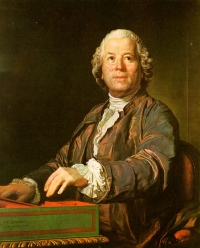
Christoph Willibald Ritter von Gluck (born 2 July 1714 Erasbach, Upper Palatinate; died 15 November 1787 in Vienna) was a composer of the 18th century, most noted for his operatic works. After many years at the Habsburg court at Vienna, Gluck brought about the practical reform of opera's dramaturgical practices that many intellectuals had been campaigning for over the years. With a series of radical new works in the 1760s, among them Orfeo ed Euridice and Alceste, he broke the stranglehold that Metastasian opera seria had enjoyed for much of the century.
The strong influence of French opera in these works encouraged Gluck to move to Paris, which he did in November 1773. Fusing the traditions of Italian opera and the French national genre into a new synthesis, Gluck wrote eight operas for the Parisian stages. One of the last of these, Iphigénie en Tauride, was a great success and is generally acknowledged to be his finest work. Though extremely popular and widely credited with bringing about a revolution in French opera, Gluck's mastery of the Parisian operatic scene was never absolute, and after the poor reception of his Echo et Narcisse, he left Paris in disgust and returned to Vienna to live out the remainder of his life.
The strong influence of French opera in these works encouraged Gluck to move to Paris, which he did in November 1773. Fusing the traditions of Italian opera and the French national genre into a new synthesis, Gluck wrote eight operas for the Parisian stages. One of the last of these, Iphigénie en Tauride, was a great success and is generally acknowledged to be his finest work. Though extremely popular and widely credited with bringing about a revolution in French opera, Gluck's mastery of the Parisian operatic scene was never absolute, and after the poor reception of his Echo et Narcisse, he left Paris in disgust and returned to Vienna to live out the remainder of his life.
Boys like Girls

Boys Like Girls is an American pop rock band from Boston, Massachusetts, who gained mainstream recognition when they released their self-titled debut album Boys Like Girls. They were the co-headliners with Good Charlotte for the Soundtrack of Your Summer Tour 2008 that toured across the U.S. The group's second studio album Love Drunk, was released on September 8, 2009.
Tchaikovsky

Pyotr Il'yich Tchaikovsky (May 7 1840 â November 6 1893) was a Russian composer of the Romantic era. While not part of the nationalistic music group known as "The Five", Tchaikovsky wrote music which, in the opinion of Harold Schonberg, was distinctly Russian: plangent, introspective, with modally-inflected melody and harmony.
Aesthetically, Tchaikovsky remained open to all aspects of Saint Petersburg musical life. He was impressed by Serov and Balakirev as well as the classical values upheld by the conservatory. Both the progressive and conservative camps in Russian music at the time attempted to win him over. Tchaikovsky charted his compositional course between these two factions, retaining his individuality as a composer as well as his Russian identity. In this he was influenced by the ideals of his teacher Nikolai Rubinstein and Nikolai's brother Anton.
Tchaikovsky's musical cosmopolitanism led him to be favored by many Russian music-lovers over the "Russian" harmonies and styles of Mussorgsky, Borodin and Rimsky-Korsakov.
Nonetheless he frequently adapted Russian traditional melodies and dance forms in his music, which enhanced his success in his home country. The success in St. Petersburg at the premiere of his Third Orchestral Suite may have been due in large part to his concluding the work with a polonaise. He also used a polonaise for the final movement of his Third Symphony.
Aesthetically, Tchaikovsky remained open to all aspects of Saint Petersburg musical life. He was impressed by Serov and Balakirev as well as the classical values upheld by the conservatory. Both the progressive and conservative camps in Russian music at the time attempted to win him over. Tchaikovsky charted his compositional course between these two factions, retaining his individuality as a composer as well as his Russian identity. In this he was influenced by the ideals of his teacher Nikolai Rubinstein and Nikolai's brother Anton.
Tchaikovsky's musical cosmopolitanism led him to be favored by many Russian music-lovers over the "Russian" harmonies and styles of Mussorgsky, Borodin and Rimsky-Korsakov.
Nonetheless he frequently adapted Russian traditional melodies and dance forms in his music, which enhanced his success in his home country. The success in St. Petersburg at the premiere of his Third Orchestral Suite may have been due in large part to his concluding the work with a polonaise. He also used a polonaise for the final movement of his Third Symphony.
Andrew Lippa
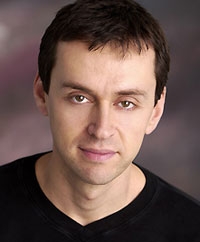
Andrew Lippa (December 22, 1964) is an American composer, lyricist, book writer, performer, and producer. He is a resident artist at the Ars Nova Theater in New York City.
Katy Perry

Katy Perry (born Katheryn Elizabeth Hudson; October 25, 1984) is an American singer-songwriter. She has risen to prominence with her 2008 single "I Kissed a Girl" which has become a worldwide hit topping the charts in more than 20 countries, including United Kingdom, Canada, Australia, Ireland, and the United States, where it was the 1000th Billboard Hot 100 number 1. Perry has stated in the press that it's thanks to successful British singer-songwriters Amy Winehouse and Lily Allen that more female artists had been appearing on the charts. She went on to say that Winehouse and Allen "have introduced America to great music". She is known for her unconventional style of dress, often humoristic, bright in color and reminiscent of different decades, as well as her frequent use of fruit-shaped accessories, mainly watermelon as part of her outfits. Perry has a contralto vocal range.
Tane Tomoko

Tomoko Tane is a Japanese singer, songwriter, and arranger. Since her debut in 1985, she has recorded various singles and albums. In 1990, her album Ureshii Hitokoto peaked at position five on the Japanese charts. She sings the theme tune "Message #9" and closing titles song "Love Song" on the anime series Gasaraki
A Fine Frenzy

Alison Sudol (born December 23, 1985), known professionally as A Fine Frenzy (formerly Alison Monro She has also been very successful in the charts in Germany, Austria, Switzerland, Poland and France - amongst other countries. Her music has also been featured on numerous television shows as well as having a song on the drama movie Sleepwalking, starring Charlize Theron, Nick Stahl and child actress AnnaSophia Robb.
Rachmaninoff

Sergei Vasilievich Rachmaninoff (1 April 1873 - 28 March 1943) was a Russian composer, pianist, and conductor. He was one of the finest pianists of his day and, as a composer, the last great representative of Russian late Romanticism in classical music. Early influences of Tchaikovsky, Rimsky-Korsakov and other Russian composers gave way to a thoroughly personal idiom which included a pronounced lyricism, expressive breadth, structural ingenuity and a tonal palette of rich, distinctive orchestral colors.
Understandably, the piano figures prominently in Rachmaninoff's compositional output, either as a solo instrument or as part of an ensemble. He made it a point, however, to use his own skills as a performer to explore fully the expressive possibilities of the instrument. Even in his earliest works, he revealed a sure grasp of idiomatic piano writing and a striking gift for melody. In some of his early orchestral pieces he showed the first signs of a talent for tone painting, which he would perfect in The Isle of the Dead, and he began to show a similar penchant for vocal writing in two early sets of songs, Opp. 4 and 8. Rachmaninoff's masterpiece, however, is his choral symphony The Bells, in which all of his talents are fused and unified.
Rachmaninoff sometimes felt threatened by the success of modernists such as Scriabin and Prokofiev and wondered whether to cease composing even before he left Russia. His musical philosophy was rooted in the Russian spiritual tradition, where the role of the artist was to create beauty and to speak the truth from the depths of his heart. In his last major interview, in 1941, he admitted his music, like Russian music, was a product of his temperament. He said, on another occasion, "The new kind of music seems to create not from the heart but from the head. Its composers think rather than feel. They have not the capacity to make their works exalt—they meditate, protest, analyze, reason, calculate and brood, but they do not exalt."
Understandably, the piano figures prominently in Rachmaninoff's compositional output, either as a solo instrument or as part of an ensemble. He made it a point, however, to use his own skills as a performer to explore fully the expressive possibilities of the instrument. Even in his earliest works, he revealed a sure grasp of idiomatic piano writing and a striking gift for melody. In some of his early orchestral pieces he showed the first signs of a talent for tone painting, which he would perfect in The Isle of the Dead, and he began to show a similar penchant for vocal writing in two early sets of songs, Opp. 4 and 8. Rachmaninoff's masterpiece, however, is his choral symphony The Bells, in which all of his talents are fused and unified.
Rachmaninoff sometimes felt threatened by the success of modernists such as Scriabin and Prokofiev and wondered whether to cease composing even before he left Russia. His musical philosophy was rooted in the Russian spiritual tradition, where the role of the artist was to create beauty and to speak the truth from the depths of his heart. In his last major interview, in 1941, he admitted his music, like Russian music, was a product of his temperament. He said, on another occasion, "The new kind of music seems to create not from the heart but from the head. Its composers think rather than feel. They have not the capacity to make their works exalt—they meditate, protest, analyze, reason, calculate and brood, but they do not exalt."
Bach

Johann Sebastian Bach (31 March 1685 – 28 July 1750) was a German composer and organist whose sacred and secular works for choir, orchestra, and solo instruments drew together the strands of the Baroque period and brought it to its ultimate maturity. Although he introduced no new forms, he enriched the prevailing German style with a robust contrapuntal technique, an unrivalled control of harmonic and motivic organisation in composition for diverse musical forces, and the adaptation of rhythms and textures from abroad, particularly Italy and France.
Revered for their intellectual depth and technical and artistic beauty, Bach's works include the Brandenburg concertos; the Goldberg Variations; the English Suites, French Suites, Partitas, and Well-Tempered Clavier; the Mass in B Minor; the St. Matthew Passion; the St. John Passion; The Musical Offering; The Art of Fugue; the Sonatas and Partitas for violin solo; the Cello Suites; more than 200 surviving cantatas; and a similar number of organ works, including the celebrated Toccata and Fugue in D Minor.
While Bach's fame as an organist was great during his lifetime, he was not particularly well-known as a composer. His adherence to Baroque forms and contrapuntal style was considered "old-fashioned" by his contemporaries, especially late in his career when the musical fashion tended towards Rococo and later Classical styles. A revival of interest and performances of his music began early in the 19th century, and he is now widely considered to be one of the greatest composers in the Western tradition.
Revered for their intellectual depth and technical and artistic beauty, Bach's works include the Brandenburg concertos; the Goldberg Variations; the English Suites, French Suites, Partitas, and Well-Tempered Clavier; the Mass in B Minor; the St. Matthew Passion; the St. John Passion; The Musical Offering; The Art of Fugue; the Sonatas and Partitas for violin solo; the Cello Suites; more than 200 surviving cantatas; and a similar number of organ works, including the celebrated Toccata and Fugue in D Minor.
While Bach's fame as an organist was great during his lifetime, he was not particularly well-known as a composer. His adherence to Baroque forms and contrapuntal style was considered "old-fashioned" by his contemporaries, especially late in his career when the musical fashion tended towards Rococo and later Classical styles. A revival of interest and performances of his music began early in the 19th century, and he is now widely considered to be one of the greatest composers in the Western tradition.
Israel Houghton

Israel Houghton
Israel Houghton.jpeg
Houghton in 2015
Background information
Also known as Israel
Born May 19, 1971 (age 48)
Oceanside, California, U.S.
Genres
Contemporary Christian music gospel praise & worship soul
Occupation(s)
Singer songwriter producer arranger
Instruments Vocals, guitar, keyboards
Years active 1997–present
Labels Integrity, RCA Inspiration
Website israelhoughton.net
Israel Houghton (/ˈhoʊtən/; born May 19, 1971) is an American Christian music singer, songwriter, producer and worship leader. Houghton is usually credited as Israel & New Breed.
Contents
1 Musical career
1.1 Discography
1.1.1 Other recordings
2 Personal life
3 Awards and nominations
4 References
5 External links
Musical career
Houghton produced an album by Michael Gungor, Bigger Than My Imagination, which was described as "one of the year's best worship albums" in a 2003 Christianity Today review.
Israel Houghton.jpeg
Houghton in 2015
Background information
Also known as Israel
Born May 19, 1971 (age 48)
Oceanside, California, U.S.
Genres
Contemporary Christian music gospel praise & worship soul
Occupation(s)
Singer songwriter producer arranger
Instruments Vocals, guitar, keyboards
Years active 1997–present
Labels Integrity, RCA Inspiration
Website israelhoughton.net
Israel Houghton (/ˈhoʊtən/; born May 19, 1971) is an American Christian music singer, songwriter, producer and worship leader. Houghton is usually credited as Israel & New Breed.
Contents
1 Musical career
1.1 Discography
1.1.1 Other recordings
2 Personal life
3 Awards and nominations
4 References
5 External links
Musical career
Houghton produced an album by Michael Gungor, Bigger Than My Imagination, which was described as "one of the year's best worship albums" in a 2003 Christianity Today review.
Frank Sinatra

Francis Albert "Frank" Sinatra (December 12, 1915 â May 14, 1998) was an American singer and actor.
Beginning his musical career in the swing era with Harry James and Tommy Dorsey, Sinatra became a solo artist with great success in the early to mid-1940s, being the idol of the "bobby soxers". His professional career had stalled by the 1950s, but it was reborn in 1954 after he won the Academy Award for Best Supporting Actor.
He signed with Capitol Records and released several critically lauded albums (such as In the Wee Small Hours, Songs for Swingin' Lovers, Come Fly with Me, Only the Lonely and Nice 'n' Easy). Sinatra left Capitol to found his own record label, Reprise Records (finding success with albums such as Ring-A-Ding-Ding, Sinatra at the Sands and Francis Albert Sinatra & Antonio Carlos Jobim), toured internationally, and fraternized with the Rat Pack and President John F. Kennedy in the early 1960s. Sinatra turned 50 in 1965, recorded the retrospective September of My Years, starred in the Emmy-winning television special Frank Sinatra: A Man and His Music, and scored hits with "Strangers in the Night" and "My Way".
Sinatra attempted to weather the changing tastes in popular music, but with dwindling album sales and after appearing in several poorly received films, he retired in 1971. Coming out of retirement in 1973, he recorded several albums, scoring a hit with "(Theme From) New York, New York" in 1980, and toured both within the United States and internationally until a few years before his death in 1998.
Sinatra also forged a career as a dramatic actor, winning the Academy Award for Best Supporting Actor for his performance in From Here to Eternity, and he was nominated for the Academy Award for Best Actor for The Man with the Golden Arm. His also starred in such musicals as High Society, Pal Joey, Guys and Dolls and On the Town. Sinatra was honored with the Kennedy Center Honors in 1983 and awarded the Presidential Medal of Freedom by Ronald Reagan in 1985 and the Congressional Gold Medal in 1997. Sinatra was also the recipient of eleven Grammy Awards, including the Grammy Trustees Award, Grammy Legend Award and the Grammy Lifetime Achievement Award.
Beginning his musical career in the swing era with Harry James and Tommy Dorsey, Sinatra became a solo artist with great success in the early to mid-1940s, being the idol of the "bobby soxers". His professional career had stalled by the 1950s, but it was reborn in 1954 after he won the Academy Award for Best Supporting Actor.
He signed with Capitol Records and released several critically lauded albums (such as In the Wee Small Hours, Songs for Swingin' Lovers, Come Fly with Me, Only the Lonely and Nice 'n' Easy). Sinatra left Capitol to found his own record label, Reprise Records (finding success with albums such as Ring-A-Ding-Ding, Sinatra at the Sands and Francis Albert Sinatra & Antonio Carlos Jobim), toured internationally, and fraternized with the Rat Pack and President John F. Kennedy in the early 1960s. Sinatra turned 50 in 1965, recorded the retrospective September of My Years, starred in the Emmy-winning television special Frank Sinatra: A Man and His Music, and scored hits with "Strangers in the Night" and "My Way".
Sinatra attempted to weather the changing tastes in popular music, but with dwindling album sales and after appearing in several poorly received films, he retired in 1971. Coming out of retirement in 1973, he recorded several albums, scoring a hit with "(Theme From) New York, New York" in 1980, and toured both within the United States and internationally until a few years before his death in 1998.
Sinatra also forged a career as a dramatic actor, winning the Academy Award for Best Supporting Actor for his performance in From Here to Eternity, and he was nominated for the Academy Award for Best Actor for The Man with the Golden Arm. His also starred in such musicals as High Society, Pal Joey, Guys and Dolls and On the Town. Sinatra was honored with the Kennedy Center Honors in 1983 and awarded the Presidential Medal of Freedom by Ronald Reagan in 1985 and the Congressional Gold Medal in 1997. Sinatra was also the recipient of eleven Grammy Awards, including the Grammy Trustees Award, Grammy Legend Award and the Grammy Lifetime Achievement Award.
Jimmy page

James Patrick Page OBE (born 9 January 1944) is an English musician, songwriter, multi-instrumentalist and record producer who achieved international success as the guitarist and founder of the rock band Led Zeppelin.Page is prolific in creating guitar riffs and his varied style involves various guitar tunings, technical and melodic solos and aggressive, distorted guitar tone as well as his folk and eastern influenced acoustic work. He is also noted for occasionally playing his guitar with a cello bow to create a droning sound texture to the music.
Nobuo Uematsu

Nobuo Uematsu (植松伸夫 Uematsu Nobuo?, born March 21, 1959) is a Japanese video game composer and musician, best known for scoring the majority of titles in the Final Fantasy series. He is regarded as one of the most famous and respected composers in the video game community. Uematsu is a self-taught musician; he began to play the piano at the age of eleven or twelve, with Elton John as his biggest influence.
Uematsu joined Square (later Square Enix) in 1985, where he met Final Fantasy creator Hironobu Sakaguchi. They have worked together on numerous titles, most notably the games in the Final Fantasy series. After nearly 20 years in the company, he left Square Enix in 2004 and founded his own company called Smile Please, as well as the music production company Dog Ear Records. He has since composed music as a freelancer for video games primarily developed by Square Enix and Sakaguchi's development studio Mistwalker.
A handful of soundtracks and arranged albums of Uematsu's game scores have been released. Pieces from his video game works have been performed in concerts worldwide, and numerous Final Fantasy concerts have also been held. He has worked with Grammy Award-winning conductor Arnie Roth on several of these concerts. In 2002, he formed a rock band with colleagues Kenichiro Fukui and Tsuyoshi Sekito called The Black Mages, in which Uematsu plays the keyboard. The band plays arranged rock versions of Uematsu's Final Fantasy compositions.
Uematsu joined Square (later Square Enix) in 1985, where he met Final Fantasy creator Hironobu Sakaguchi. They have worked together on numerous titles, most notably the games in the Final Fantasy series. After nearly 20 years in the company, he left Square Enix in 2004 and founded his own company called Smile Please, as well as the music production company Dog Ear Records. He has since composed music as a freelancer for video games primarily developed by Square Enix and Sakaguchi's development studio Mistwalker.
A handful of soundtracks and arranged albums of Uematsu's game scores have been released. Pieces from his video game works have been performed in concerts worldwide, and numerous Final Fantasy concerts have also been held. He has worked with Grammy Award-winning conductor Arnie Roth on several of these concerts. In 2002, he formed a rock band with colleagues Kenichiro Fukui and Tsuyoshi Sekito called The Black Mages, in which Uematsu plays the keyboard. The band plays arranged rock versions of Uematsu's Final Fantasy compositions.
Eric Clapton

Eric Patrick Clapton, CBE (born 30 March 1945), is an English blues-rock guitarist, singer, songwriter and composer. He is one of the most successful musicians of the 20th and 21st centuries, garnering an unprecedented three inductions into the Rock and Roll Hall of Fame (The Yardbirds, Cream, and solo). Often viewed by critics and fans alike as one of the greatest guitarists of all time, Clapton was ranked fourth in Rolling Stone Magazine's list of the "100 Greatest Guitarists of All Time" and #53 on their list of the Immortals: 100 Greatest Artists of All Time.
Although Clapton's musical style has varied throughout his career, it has usually remained rooted in the blues. Clapton is credited as an innovator in several phases of his career, which have included blues-rock (with John Mayall & the Bluesbreakers and The Yardbirds) and psychedelic rock (with Cream). Clapton has also achieved great chart success in genres ranging from Delta blues (Me and Mr. Johnson) to pop ("Change the World") and reggae (Bob Marley's "I Shot the Sheriff"). Clapton also achieved fame with Derek and the Dominos through the hit song "Layla".
Although Clapton's musical style has varied throughout his career, it has usually remained rooted in the blues. Clapton is credited as an innovator in several phases of his career, which have included blues-rock (with John Mayall & the Bluesbreakers and The Yardbirds) and psychedelic rock (with Cream). Clapton has also achieved great chart success in genres ranging from Delta blues (Me and Mr. Johnson) to pop ("Change the World") and reggae (Bob Marley's "I Shot the Sheriff"). Clapton also achieved fame with Derek and the Dominos through the hit song "Layla".
Modà

Modà is an Italian pop band from Milan. Formed in 2002, the band currently consists of lead singer Kekko Silvestre, guitarists Diego Arrigoni and Enrico Zapparoli, bass guitarist Stefano Forcella and drummer Claudio Dirani.
Tenshi no Kage
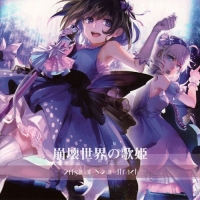
Haruka, a girl who is about to lose her life or death due to a sudden traffic accident. The moment I tried to put my hand on the shoulder of a crying friend, I realized that I was already out of the body. Haruka, who has begun a journey to that world, meets a boy in the dark world of "darkness". With green eyes, he called himself "Taka", taught him how to get rid of the deadly dead and return to this world, and gave him directions. Can these two escape from this desolate world? The "9 souls of the cat" recorded at the beginning is a mysterious fantasy that reflects the cluster between
Big Cyc

Big Cyc is a Polish rock band formed in March 1988. The band is well known in Poland for their controversial behaviour. The cover of their first album, Z partyjnym pozdrowieniem, was an image of Vladimir Lenin with a Mohawk hairstyle.
Genesis
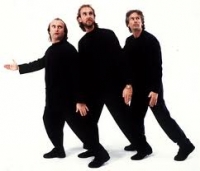
Genesis are an English rock band that formed in 1967. The band currently comprises the longest-tenured members Phil Collins, Mike Rutherford and Tony Banks. Past members Peter Gabriel, Anthony Phillips and Steve Hackett also played major roles in the band in its early years. Genesis are among the top 30 highest-selling recording artists of all time with approximately 150 million albums sold worldwide.
Ernesto Lecuona
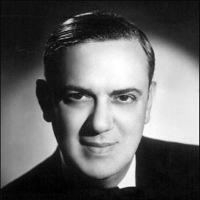
Ernesto Lecuona y Casado (Spanish pronunciation: ; August 6, 1895 – November 29, 1963) was a Cuban composer and pianist of worldwide fame. He composed over six hundred pieces, mostly in the Cuban vein, and was a pianist of exceptional skill. His father was Canarian and his mother was Cuban.
Hillsong United

The Hillsong United band is an Australian rock and worship band, a part of Hillsong Church's youth ministry Hillsong United. Their music is a contemporary style of praise and worship tempered with mainstream rock.
Current members of the Hillsong United band include Jonathon Douglass (J.D.), Jadwin "Jad" Gillies, Holly Watson, Annie Garratt, Bec Gillies, and Michelle Fragar, daughter of Russell Fragar. Michael Guy Chislett plays guitar and Matthew Tennikoff plays bass guitar. Former original drummer Luke Munns made a transition from the drums to front the rock/indie band LUKAS. Popular New Zealand artist Brooke Fraser recently joined the band when she joined the church, first appearing on United We Stand.
The annual Hillsong United CD/DVD was recorded over many years during their October youth conference Encounterfest, with the album released in the first quarter of the following year. The 2007 album All of the Above was the first album to be fully studio recorded, containing videos of songs on the DVD. The band has toured in a number of countries, leading worship to thousands in North and South America, Europe and Asia.
Current members of the Hillsong United band include Jonathon Douglass (J.D.), Jadwin "Jad" Gillies, Holly Watson, Annie Garratt, Bec Gillies, and Michelle Fragar, daughter of Russell Fragar. Michael Guy Chislett plays guitar and Matthew Tennikoff plays bass guitar. Former original drummer Luke Munns made a transition from the drums to front the rock/indie band LUKAS. Popular New Zealand artist Brooke Fraser recently joined the band when she joined the church, first appearing on United We Stand.
The annual Hillsong United CD/DVD was recorded over many years during their October youth conference Encounterfest, with the album released in the first quarter of the following year. The 2007 album All of the Above was the first album to be fully studio recorded, containing videos of songs on the DVD. The band has toured in a number of countries, leading worship to thousands in North and South America, Europe and Asia.
Peter Svensson
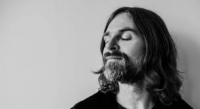
Anders Peter Svensson is a Swedish record producer, songwriter, and musician. He is the main songwriter and guitarist of the band the Cardigans. He started playing guitar at the age of eight, and in his teens he went on to play with local bands. After meeting bass player Magnus Sveningsson, they formed The Cardigans in 1992. Peter Svensson is credited with writing the music and melodies for almost all of the group's original songs.
Ludwig van Beethoven

Ludwig van Beethoven (/ˈlʊdvɪɡ væn ˈbeɪt(h)oʊvən/ (About this soundlisten); German: (About this soundlisten); baptised 17 December 1770 – 26 March 1827) was a German composer and pianist. A crucial figure in the transition between the classical and romantic eras in classical music, he remains one of the most recognized and influential musicians of this period, and is considered to be one of the greatest composers of all time.
Beethoven was born in Bonn, the capital of the Electorate of Cologne, and part of the Holy Roman Empire. He displayed his musical talents at an early age and was vigorously taught by his father Johann van Beethoven, and was later taught by composer and conductor Christian Gottlob Neefe. At age 21, he moved to Vienna and studied composition with Joseph Haydn. Beethoven then gained a reputation as a virtuoso pianist, and was soon courted by Prince Lichnowsky for compositions, which resulted in Opus 1 in 1795.
Beethoven was born in Bonn, the capital of the Electorate of Cologne, and part of the Holy Roman Empire. He displayed his musical talents at an early age and was vigorously taught by his father Johann van Beethoven, and was later taught by composer and conductor Christian Gottlob Neefe. At age 21, he moved to Vienna and studied composition with Joseph Haydn. Beethoven then gained a reputation as a virtuoso pianist, and was soon courted by Prince Lichnowsky for compositions, which resulted in Opus 1 in 1795.
Julio de Caro
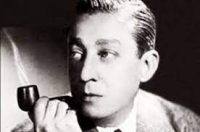
Julio de Caro (December 11, 1899 – March 11, 1980) was an Argentine composer, musician and conductor prominent in the Tango genre.His father opened a conservatory in the San Telmo district, in 1913, soon becoming one of the city's best known sources for music, instruments, parts, and lessons. He and his brother, Francisco, were both taught the piano and violin, respectively; though their father ultimately granted them their wish to exchange instruments (a third brother, Emilio, learned the violin). Against his father's wishes, Julio obtained a spot as a second violinist at the Lorea Theatre for a 1915 performance of a zarzuela. Despite his father's punishment and objections, the brothers began attending Buenos Aires' popular tango recitals. Some of these early influences included bandleaders Eduardo Arolas, Juan Carlos Cobián, and Roberto Firpo.
Felix Mendelssohn

Jakob Ludwig Felix Mendelssohn Bartholdy, born, and generally known in English-speaking countries, as Felix Mendelssohn (February 3, 1809 – November 4, 1847) was a German composer, pianist, organist and conductor of the early Romantic period.
The grandson of the philosopher Moses Mendelssohn, he was born into a notable Jewish family, although he himself was brought up initially without religion, and later as a Lutheran. He was recognized early as a musical prodigy, but his parents were cautious and did not seek to capitalise on his abilities. Indeed his father was disinclined to allow Felix to follow a musical career until it became clear that he intended to seriously dedicate himself to it.
Early success in Germany was followed by travel throughout Europe; Mendelssohn was particularly well received in England as a composer, conductor and soloist, and his ten visits there, during which many of his major works were premiered, form an important part of his adult career. His essentially conservative musical tastes however set him apart from many of his more adventurous musical contemporaries such as Liszt, Wagner and Berlioz. The Conservatory he founded at Leipzig became a bastion of this anti-radical outlook.
Mendelssohn's work includes symphonies, concerti, oratorios, piano and chamber music. He also had an important role in the revival of interest in the music of Johann Sebastian Bach. After a long period of relative denigration due to changing musical tastes and antisemitism in the late 19th and early 20th centuries, his creative originality is now being recognized and re-evaluated. He is now among the most popular composers of the Romantic era.
The grandson of the philosopher Moses Mendelssohn, he was born into a notable Jewish family, although he himself was brought up initially without religion, and later as a Lutheran. He was recognized early as a musical prodigy, but his parents were cautious and did not seek to capitalise on his abilities. Indeed his father was disinclined to allow Felix to follow a musical career until it became clear that he intended to seriously dedicate himself to it.
Early success in Germany was followed by travel throughout Europe; Mendelssohn was particularly well received in England as a composer, conductor and soloist, and his ten visits there, during which many of his major works were premiered, form an important part of his adult career. His essentially conservative musical tastes however set him apart from many of his more adventurous musical contemporaries such as Liszt, Wagner and Berlioz. The Conservatory he founded at Leipzig became a bastion of this anti-radical outlook.
Mendelssohn's work includes symphonies, concerti, oratorios, piano and chamber music. He also had an important role in the revival of interest in the music of Johann Sebastian Bach. After a long period of relative denigration due to changing musical tastes and antisemitism in the late 19th and early 20th centuries, his creative originality is now being recognized and re-evaluated. He is now among the most popular composers of the Romantic era.
Metallica

Metallica is an American heavy metal band that formed in 1981 in Los Angeles, California. Founded when drummer Lars Ulrich posted an advertisement in a Los Angeles newspaper, Metallica's original line-up consisted of Ulrich, rhythm guitarist and vocalist James Hetfield, lead guitarist Dave Mustaine, and bassist Ron McGovney. These last two were later replaced from the band, in favor of Kirk Hammett and Cliff Burton, respectively. In September 1986, Metallica's tour bus skidded out of control and flipped, which resulted in Burton being crushed under the bus and killed. Jason Newsted replaced him less than two months later. Newsted left the band in 2001 and was replaced by Robert Trujillo in 2003.
Metallica's early releases included fast tempos, instrumentals, and aggressive musicianship that placed them as one of the "Big Four" of the thrash metal subgenre alongside Slayer, Megadeth and Anthrax. The band earned a growing fan base in the underground music community, and some critics say the 1986 release Master of Puppets is one of the most influential and "heavy" thrash metal albums. The band achieved substantial commercial success with its self-titled 1991 album, which debuted at number one on the Billboard 200. Some critics and fans believed the band changed its musical direction to appeal to the mainstream audience. With the release of Load in 1996, Metallica distanced itself from earlier releases in what has been described as "an almost alternative rock approach", and the band faced accusations of "selling out".
In 2000, Metallica was among several artists who filed a lawsuit against Napster for sharing the band's copyright-protected material for free without the band members' consent. A settlement was reached, and Napster became a pay-to-use service. Despite reaching number one on the Billboard 200, the release of St. Anger in 2003 disappointed some critics and fans with the exclusion of guitar solos, and the "steel-sounding" snare drum. A film titled Some Kind of Monster documented the recording process of St. Anger.
Metallica's early releases included fast tempos, instrumentals, and aggressive musicianship that placed them as one of the "Big Four" of the thrash metal subgenre alongside Slayer, Megadeth and Anthrax. The band earned a growing fan base in the underground music community, and some critics say the 1986 release Master of Puppets is one of the most influential and "heavy" thrash metal albums. The band achieved substantial commercial success with its self-titled 1991 album, which debuted at number one on the Billboard 200. Some critics and fans believed the band changed its musical direction to appeal to the mainstream audience. With the release of Load in 1996, Metallica distanced itself from earlier releases in what has been described as "an almost alternative rock approach", and the band faced accusations of "selling out".
In 2000, Metallica was among several artists who filed a lawsuit against Napster for sharing the band's copyright-protected material for free without the band members' consent. A settlement was reached, and Napster became a pay-to-use service. Despite reaching number one on the Billboard 200, the release of St. Anger in 2003 disappointed some critics and fans with the exclusion of guitar solos, and the "steel-sounding" snare drum. A film titled Some Kind of Monster documented the recording process of St. Anger.
Spice Girls

The Spice Girls were a BRIT Award-winning English pop Girl group formed in 1994. Consisting of Geri Halliwell, Victoria Beckham, Melanie Brown, Emma Bunton, and Melanie Chisholm. According to the BBC, they are the best selling girl group of all time.
They were signed to Virgin Records and released their debut single, "Wannabe", in 1996. The song spent seven weeks at the top of the UK Singles Chart, become number one in 31 nations and helped establish the group as an Global phenomenon. The Spice Girls have sold more than 55 million records worldwide with only three albums (the first two with Geri), landing them the title for fastest selling girl group ever. The demand for their first two albums was unprecedented, making it the most successful British band since the Beatles. Their first album, Spice, sold more than 23 million copies worldwide, listed #41 in the list of 100 Best Selling Albums Of All Time, become the best-selling album by a female group in the history. Measures of their success include international record sales, a 2008 reunion tour, merchandising, record breaking achievements such as "Wannabe" becoming the biggest single released by a female group and iconic symbolism such as the union jack dress, "Girl Power", and their nicknames.
In 1997, the Spice Girls released a movie called Spiceworld: The Movie.
The members went their separate ways in 2001 (although a break-up was never formally announced) to focus on their solo careers. On 28 June 2007 all five re-formed before the launch of their Reunion Tour in December, alongside the release of their Greatest Hits album. In December 2007, the Spice Girls made a program called Giving You Everything, which showed the beginning to the current reunion of the Spice Girls. In February 2008, the Spice Girls announced that they were ending their tour in Toronto on 26 February 2008.
They were signed to Virgin Records and released their debut single, "Wannabe", in 1996. The song spent seven weeks at the top of the UK Singles Chart, become number one in 31 nations and helped establish the group as an Global phenomenon. The Spice Girls have sold more than 55 million records worldwide with only three albums (the first two with Geri), landing them the title for fastest selling girl group ever. The demand for their first two albums was unprecedented, making it the most successful British band since the Beatles. Their first album, Spice, sold more than 23 million copies worldwide, listed #41 in the list of 100 Best Selling Albums Of All Time, become the best-selling album by a female group in the history. Measures of their success include international record sales, a 2008 reunion tour, merchandising, record breaking achievements such as "Wannabe" becoming the biggest single released by a female group and iconic symbolism such as the union jack dress, "Girl Power", and their nicknames.
In 1997, the Spice Girls released a movie called Spiceworld: The Movie.
The members went their separate ways in 2001 (although a break-up was never formally announced) to focus on their solo careers. On 28 June 2007 all five re-formed before the launch of their Reunion Tour in December, alongside the release of their Greatest Hits album. In December 2007, the Spice Girls made a program called Giving You Everything, which showed the beginning to the current reunion of the Spice Girls. In February 2008, the Spice Girls announced that they were ending their tour in Toronto on 26 February 2008.
Leopold Godowsky
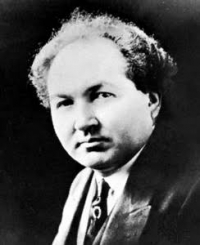
Leopold Godowky is a Polish piano virtuoso, composer. He is one of the most famous classical music pianists of the 20th century. It is known for its unique piano technique. He is known as the Pianist of the Pianists.
Ennio Morricone
Ennio Morricone, OMRI (born November 10, 1928), is an Italian composer and conductor. He has composed and arranged scores for more than 500 film and television productions. Morricone is considered as one of the most influential film composers since the late 1950s. He is well-known for his long-term collaborations with international acclaimed directors such as Sergio Leone, Brian De Palma, Barry Levinson, and Giuseppe Tornatore.
He wrote the characteristic film scores of Leone's Spaghetti Westerns A Fistful of Dollars (1964), For a Few Dollars More (1965), The Good, the Bad and the Ugly (1966), Once Upon a Time in the West (1968), The Great Silence (1968), and My Name Is Nobody (1973). In the 80s, Morricone composed the scores for John Carpenter's horror movie The Thing (1982), Leone's Once Upon a Time in America (1984), Roland Joffé's The Mission (1986), Brian De Palma's The Untouchables (1987) and Giuseppe Tornatore's Cinema Paradiso (1988).
His more recent compositions include the scores for Oliver Stone's U Turn (1997), Tornatore's The Legend of 1900 (1998) and Malèna (2000), Mission to Mars (2000) by Brian De Palma, Fateless (2005), and Baaria - La porta del vento (2009). Ennio Morricone has won two Grammy Awards, two Golden Globes and five Anthony Asquith Awards for Film Music by BAFTA in 1979–1992. He has been nominated for five Academy Awards for Best Music, Original Score in 1979–2001. Morricone received the Honorary Academy Award in 2007 "for his magnificent and multifaceted contributions to the art of film music". He was the second composer to receive this award after its introduction in 1928.
He wrote the characteristic film scores of Leone's Spaghetti Westerns A Fistful of Dollars (1964), For a Few Dollars More (1965), The Good, the Bad and the Ugly (1966), Once Upon a Time in the West (1968), The Great Silence (1968), and My Name Is Nobody (1973). In the 80s, Morricone composed the scores for John Carpenter's horror movie The Thing (1982), Leone's Once Upon a Time in America (1984), Roland Joffé's The Mission (1986), Brian De Palma's The Untouchables (1987) and Giuseppe Tornatore's Cinema Paradiso (1988).
His more recent compositions include the scores for Oliver Stone's U Turn (1997), Tornatore's The Legend of 1900 (1998) and Malèna (2000), Mission to Mars (2000) by Brian De Palma, Fateless (2005), and Baaria - La porta del vento (2009). Ennio Morricone has won two Grammy Awards, two Golden Globes and five Anthony Asquith Awards for Film Music by BAFTA in 1979–1992. He has been nominated for five Academy Awards for Best Music, Original Score in 1979–2001. Morricone received the Honorary Academy Award in 2007 "for his magnificent and multifaceted contributions to the art of film music". He was the second composer to receive this award after its introduction in 1928.
Eduardo Souto
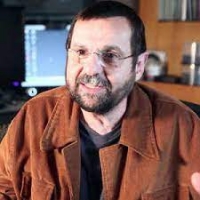
Eduardo Souto Neto (Rio de Janeiro, 20 de fevereiro de 1951) é um maestro, compositor, arranjador e instrumentista brasileiro.Eduardo é talvez o mais popular e reconhecido compositor de música incidental no Brasil. Isso se deve graças ao sucesso e prestígio de trilhas e temas compostos por ele para a televisão, publicidade e outras mídias.
Motoi Sakuraba

Motoi Sakuraba (桜庭 統, Sakuraba Motoi, born August 5, 1965) is a Japanese composer and keyboardist known for his numerous musical contributions in video games, anime series, television dramas, and progressive rock albums. Some of his notable works include the Tales, Star Ocean, Mario Golf, Mario Tennis, Golden Sun, and Dark Souls series.Sakuraba was born in Akita Prefecture, Japan. While attending Meiji University, Sakuraba began to take music composition seriously, and eventually formed the progressive rock band "Clashed Ice" in 1984, consisting of him on keyboards and Genta Kudo on drums and vocals.
Igor Iventiev

He is a russian composer from Moscow. He was educated first at the College Music from the Moscow Conservatory and then at the State Academy of Music in Moscow.
Nikolai Rimsky-Korsakov
Nikolai Andreyevich Rimsky-Korsakov (Russian: Николай Андреевич Римский-Корсаков, IPA: (About this soundlisten); 18 March 1844 – 21 June 1908) was a Russian composer, and a member of the group of composers known as The Five. He was a master of orchestration. His best-known orchestral compositions—Capriccio Espagnol, the Russian Easter Festival Overture, and the symphonic suite Scheherazade—are staples of the classical music repertoire, along with suites and excerpts from some of his 15 operas. Scheherazade is an example of his frequent use of fairy-tale and folk subjects.
Carl Philipp Emanuel Bach

Carl Philipp Emanuel Bach (8 March 1714 – 14 December 1788) was a German musician and composer, the second of three sons of Johann Sebastian Bach and Maria Barbara Bach. He was a crucial composer in the transition between the Baroque and Classical periods, and one of the founders of the Classical style, composing in the Rococo and Classical periods. His second name was given in honor of Georg Philipp Telemann, a friend of Emanuel's father and his godfather.
Through the latter half of the 18th century, the reputation of Emanuel Bach stood very high. Wolfgang Amadeus Mozart said of him, "He is the father, we are the children." The best part of Joseph Haydn's training was derived from a study of his work. Ludwig van Beethoven expressed for his genius the most cordial admiration and regard. This position he owes mainly to his keyboard sonatas, which mark an important epoch in the history of musical form. Lucid in style, delicate and tender in expression, they are even more notable for the freedom and variety of their structural design; they break away altogether from both the Italian and the Viennese schools, moving instead toward the cyclical and improvisatory forms that would become common several generations later.
The content of his work is full of invention and, most importantly, extreme unpredictability, and wide emotional range even within a single work, a style that may be categorised as Empfindsamer Stil. It is no less sincere in thought than polished and felicitous in phrase. He was probably the first composer of eminence who made free use of harmonic colour for its own sake since the time of Lassus, Monteverdi, and Gesualdo. In this way, he compares well with the most important representatives of the First Viennese School. In fact he exerted enormous influence on the North German School of composers, in particular Georg Anton Benda, Bernhard Joachim Hagen, Ernst Wilhelm Wolf, Johann Gottfried Müthel, Friedrich Wilhelm Rust and many others. His influence was not limited to his contemporaries, and extended to Felix Mendelssohn and Carl Maria von Weber.
Through the latter half of the 18th century, the reputation of Emanuel Bach stood very high. Wolfgang Amadeus Mozart said of him, "He is the father, we are the children." The best part of Joseph Haydn's training was derived from a study of his work. Ludwig van Beethoven expressed for his genius the most cordial admiration and regard. This position he owes mainly to his keyboard sonatas, which mark an important epoch in the history of musical form. Lucid in style, delicate and tender in expression, they are even more notable for the freedom and variety of their structural design; they break away altogether from both the Italian and the Viennese schools, moving instead toward the cyclical and improvisatory forms that would become common several generations later.
The content of his work is full of invention and, most importantly, extreme unpredictability, and wide emotional range even within a single work, a style that may be categorised as Empfindsamer Stil. It is no less sincere in thought than polished and felicitous in phrase. He was probably the first composer of eminence who made free use of harmonic colour for its own sake since the time of Lassus, Monteverdi, and Gesualdo. In this way, he compares well with the most important representatives of the First Viennese School. In fact he exerted enormous influence on the North German School of composers, in particular Georg Anton Benda, Bernhard Joachim Hagen, Ernst Wilhelm Wolf, Johann Gottfried Müthel, Friedrich Wilhelm Rust and many others. His influence was not limited to his contemporaries, and extended to Felix Mendelssohn and Carl Maria von Weber.
Jeremy Soule

Jeremy Soule (/ˈsoʊl/; born December 19, 1975) is an American composer of soundtracks for film, television and video games. He has won multiple awards and has been described as the "John Williams of video game music" and "a model of success" for Western composers. He has composed soundtracks for over 60 games and over a dozen other works during his career. He is best known for his work in The Elder Scrolls and Guild Wars series, and several other top-selling titles such as Total Annihilation, Neverwinter Nights, Dungeon Siege, Star Wars: Knights of the Old Republic, and Harry Potter.
Murray Gold
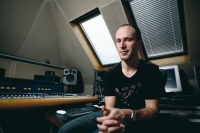
Murray Jonathan Gold (born 28 February 1969) is an English composer for stage, film, and television and a dramatist for both theatre and radio. He is best known as the musical director and composer of the music for Doctor Who from 2005, until he stepped down in 2018 after the tenth series aired in 2017. He has been nominated for five BAFTAs.Born in Portsmouth to a Jewish family, Gold initially pursued drama as a vocation, writing and playing music as a hobby, but switched to music when he became musical director for the University of Cambridge's Footlights society.
Tenmon
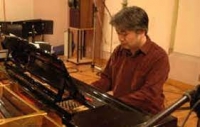
Tenmon (天門), born Atsushi Shirakawa (白川 篤史, Shirakawa Atsushi), is a Japanese music composer from Tokyo, Japan born October 4, 1971. He worked in the Nihon Falcom Corporation as one of the members of Falcom Sound Team J.D.K.. During his time with Falcom, he has composed much music for Falcom games, most notably Brandish.
Having known Makoto Shinkai as a coworker in Minori he has composed music for Shinkai's works since She and Her Cat. He is perhaps best known for creating the soundtracks for Shinkai's subsequent works, Voices of a Distant Star, The Place Promised in Our Early Days, 5 Centimeters Per Second and his final Shinkai collaboration being Children Who Chase Lost Voices from Deep Below.
Having known Makoto Shinkai as a coworker in Minori he has composed music for Shinkai's works since She and Her Cat. He is perhaps best known for creating the soundtracks for Shinkai's subsequent works, Voices of a Distant Star, The Place Promised in Our Early Days, 5 Centimeters Per Second and his final Shinkai collaboration being Children Who Chase Lost Voices from Deep Below.
Javad Maroufi
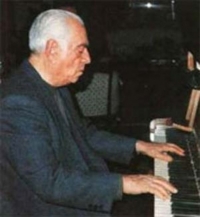
Javād Ma'roufi was born in Tehran to the musician father Musā Ma'roufi and mother Ozrā Ma'roufi (or Ezra Ma'roufi) who both were distinguished pupils of Darvish Khan, a renowned music master of the time in Iran. Javād Ma'roufi lost his mother at young age, and consequently grew up in his paternal family. He was taught in music first by his father, playing both the tar and the violin. At fourteen he attended the Academy of Music of which Ali-Naqi Vaziri was the director and where he studied the piano under the music master Tatiana Kharatian (تاتیانا خاراطیان). During this period he studied works by Chopin, Mozart, Beethoven and Bach.
Lee Yi-Sak
Lee Yi-Sak Musical artist Songs
Yellow Shoes Love Affairs In The Afternoon (Original Television Soundtrack) · 2019 There Cheat On Me If You Can (Original Television Soundtrack) · 2021 Taboo Love Affairs In The Afternoon (Original Television Soundtrack) · 2019
Yellow Shoes Love Affairs In The Afternoon (Original Television Soundtrack) · 2019 There Cheat On Me If You Can (Original Television Soundtrack) · 2021 Taboo Love Affairs In The Afternoon (Original Television Soundtrack) · 2019
Brahms

Johannes Brahms (May 7, 1833 â April 3, 1897) was a German composer of the Romantic period. He was born in Hamburg and in his later years he settled in Vienna, Austria.
Brahms maintained a Classical sense of form and order in his works â in contrast to the opulence of the music of many of his contemporaries. Thus many admirers (though not necessarily Brahms himself) saw him as the champion of traditional forms and "pure music," as opposed to the New German embrace of program music.
Brahms venerated Beethoven: in the composer's home, a marble bust of Beethoven looked down on the spot where he composed, and some passages in his works are reminiscent of Beethoven's style. The main theme of the finale of Brahms's First Symphony is reminiscent of the main theme of the finale of Beethoven's Ninth, and when this resemblance was pointed out to Brahms he replied that any ass â jeder Esel â could see that.
Ein deutsches Requiem was partially inspired by his mother's death in 1865, but also incorporates material from a Symphony he started in 1854, but abandoned following Schumann's suicide attempt. He once wrote that the Requiem "belonged to Schumann". The first movement of this abandoned Symphony was re-worked as the first movement of the First Piano Concerto.
Brahms also loved the Classical composers Mozart and Haydn. He collected first editions and autographs of their works, and edited performing editions. He also studied the music of pre-classical composers, including Giovanni Gabrieli, Johann Adolph Hasse, Heinrich Schütz and especially Johann Sebastian Bach. His friends included leading musicologists, and with Friedrich Chrysander he edited an edition of the works of François Couperin. He looked to older music for inspiration in the arts of strict counterpoint; the themes of some of his works are modelled on Baroque sources, such as Bach's The Art of Fugue in the fugal finale of Cello Sonata No. 1, or the same composer's Cantata No. 150 in the passacaglia theme of the Fourth Symphony's finale.
Brahms maintained a Classical sense of form and order in his works â in contrast to the opulence of the music of many of his contemporaries. Thus many admirers (though not necessarily Brahms himself) saw him as the champion of traditional forms and "pure music," as opposed to the New German embrace of program music.
Brahms venerated Beethoven: in the composer's home, a marble bust of Beethoven looked down on the spot where he composed, and some passages in his works are reminiscent of Beethoven's style. The main theme of the finale of Brahms's First Symphony is reminiscent of the main theme of the finale of Beethoven's Ninth, and when this resemblance was pointed out to Brahms he replied that any ass â jeder Esel â could see that.
Ein deutsches Requiem was partially inspired by his mother's death in 1865, but also incorporates material from a Symphony he started in 1854, but abandoned following Schumann's suicide attempt. He once wrote that the Requiem "belonged to Schumann". The first movement of this abandoned Symphony was re-worked as the first movement of the First Piano Concerto.
Brahms also loved the Classical composers Mozart and Haydn. He collected first editions and autographs of their works, and edited performing editions. He also studied the music of pre-classical composers, including Giovanni Gabrieli, Johann Adolph Hasse, Heinrich Schütz and especially Johann Sebastian Bach. His friends included leading musicologists, and with Friedrich Chrysander he edited an edition of the works of François Couperin. He looked to older music for inspiration in the arts of strict counterpoint; the themes of some of his works are modelled on Baroque sources, such as Bach's The Art of Fugue in the fugal finale of Cello Sonata No. 1, or the same composer's Cantata No. 150 in the passacaglia theme of the Fourth Symphony's finale.
 Sheet Music Drive is a web site for those who wants to access popular sheet music easily,
letting them download the sheet music for free for trial purposes.
It's completely free to download and try the listed sheet music, but you have to delete the files after 24 hours of trial period.
Don't forget, if you like the piece of music you have just learned playing,
treat the artist with respect, and go buy the original sheet music.
Sheet Music Drive is a web site for those who wants to access popular sheet music easily,
letting them download the sheet music for free for trial purposes.
It's completely free to download and try the listed sheet music, but you have to delete the files after 24 hours of trial period.
Don't forget, if you like the piece of music you have just learned playing,
treat the artist with respect, and go buy the original sheet music.
